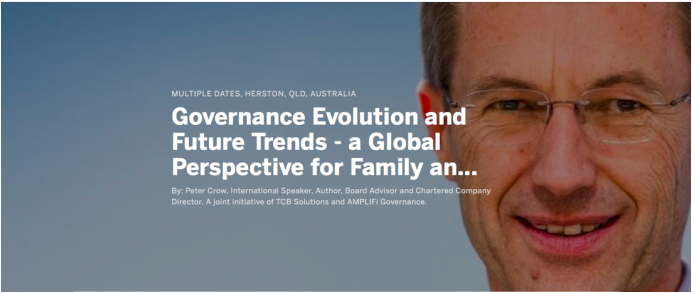|
I've been pondering this question for quite a few years now, since reading a seemingly endless stream of articles about the global financial crisis of 2007–2009 published in the popular press and academic literature. Curiously, many authors identified the board as a source of failure (of corporate governance), yet few if any have offered positive contributions to put corporate governance back on the tracks. This apparent void was one of the motivations of my doctoral research quest. However, from time to time, articles do stand out, because the authors speak out. Their comments may not be popular, but take a stand they do. Recently, the ICSA recognised one such author, Ruth Keating, who openly asked the question in a recent essay competition. Two sentences towards the end of her well structured and very readable essay say it all: “Corporate governance can do better, and with significant investment, capital and jobs on the line, it must. Good governance requires a new approach, because governance has become a formality to be satisfied rather than something which can be hugely valuable." My hope is that, by openly asking the question (as Ms Keating has) others might join the debate. One outcome could be a new understanding of corporate governance and a genuine commitment by the board to add value. Who knows where this might lead, perhaps even to a new normal, whereby boards expect to exert influence from and beyond the boardroom. If that is achieved, a new dawn might not be too far away.
0 Comments
What is it with the equinox? In the six days that have passed since the equinox announced the changing of the seasons, my phone and email box have been running hot. A stream of enquiries and requests from business leaders in Australasia, the UK, Western Europe, South-east Asia and the Middle East have arrived. I have been asked to speak at conferences and major events, provide guidance to boards and management groups, discuss the findings from latest research, facilitate strategy workshops, and to lead director development workshops. That some many people have decided to reach out is truly an honour. Thank you. Several visits to major cities around the world have now been scheduled to fulfil commitments, as follows:
If you have an interest in corporate governance, strategic management or a related topic and want to take advantage of my proximity(*), please contact me. I would be delighted to hear from you to understand your situation and to arrange to meet you in person or to schedule an event. (*) If you would like to schedule a meeting or an event but the venues and dates listed do not fit your timetable, please reach out anyway, so that we can discuss an alternate arrangement that does suit your requirements.
About 25 years ago, I remember seeing, for first time, a rather compelling video on competitive strategy. Michael E Porter, a Harvard professor, spoke about competitive strategy and sustainable competitive advantage. He said that competitive advantage (and, therefore, business success) was largely a matter of deciding whether to pursue a cost (price) or differentiation strategy. More recently, others have suggested that every product/service/company needs to have a unique selling proposition (USP) or a point of difference. Fast forward to 2016. Is this pathway still viable? In a crowded world, new entrants come and go, all the time. Barriers to entry for new products and services are getting lower. In this environment, how realistic is it to think that any USP might actually be unique, let alone sustainably so? Also, a product that is different or cheaper is of little consequence if no one buys it. Difference is important, but not in the way most people think (unique features &c.). Difference works only until someone copies you. Then you are the same. Your difference, your USP, is no longer unique. Further, at a population level, product or service success doesn't depend on price or feature set. Most customers don't care what products or services do. They do care about the what difference it will make to them. This challenge is arguably even more important at a company level (i.e., corporate strategy). So, next time your board and management team convenes a strategic thinking workshop, as part of a strategy development process, change the playing field. Ask you facilitator to write these two questions on the whiteboard—and to keep coming back to them throughout the session.
You might be surprised at the result.
Earlier this year, Lloyd Russell of TCB Solutions and Deb Coren of AMPLIFI Governance contacted me to discuss an event they were planning in their home town of Brisbane, Australia. They wanted me to deliver some talks and share some insights on the evolution of governance—with a specific focus on family-owned businesses. After learning more about their plans I was thrilled to accept the invitation. With that, planning got underway. Two events have now been scheduled on Thu 19 May, one in the morning and the other in the evening. If you are a family or private business owner; or an independent director, advisor or partner, then this event may be of interest. Click on the image for more information and to register (a new browser page will open).
One Saturday morning, about fifteen years ago, my elderly father-in-law and I sat in the morning sun, sharing a few stories over a cup of tea. He was asking about my then burgeoning advisory business and family life. I was interested in hearing him reflect on his experiences in business, particularly his career-long journey with the same employer—from a junior staff member to, eventually, chief executive. As he spoke, Bill reminded me that he only ever had one employer, and that although he had been blessed to contribute at many levels he had only ever completed one job interview, that being when he first got a job. He went on to talk about the power of team over individual, and of loyalty to both your employer and your own principles. Much has changed since he retired in 1984, not the least of which has been the erosion of the values that served as Bill's North Star throughout his career. Today, most things are negotiable. For many, the motivation has changed, from providing service (to the employer) to self-service. Never has this been more apparent in the everyday behaviours of staff, particularly the younger generation. If we don't get want we want, or if we get a better offer elsewhere, we act. That staff and customers are more interested in self(ie) has huge implications for productivity and value creation in the longer-term. While team productivity is a matter for the chief executive, value creation is the responsibility of the board on behalf of the shareholder. How is your board wrestling with this? Does your board regularly allocate time to understand the changing environment, consider strategic options and make strategic decisions? Companies that expect to thrive in the future need to address the emergent challenge of 'self(ie)'. The best place to start the discussion is in the boardroom.
|
SearchMusingsThoughts on corporate governance, strategy and boardcraft; our place in the world; and other topics that catch my attention. Categories
All
Archives
May 2024
|
|
Dr. Peter Crow, CMInstD
|
© Copyright 2001-2024 | Terms of use & privacy
|






